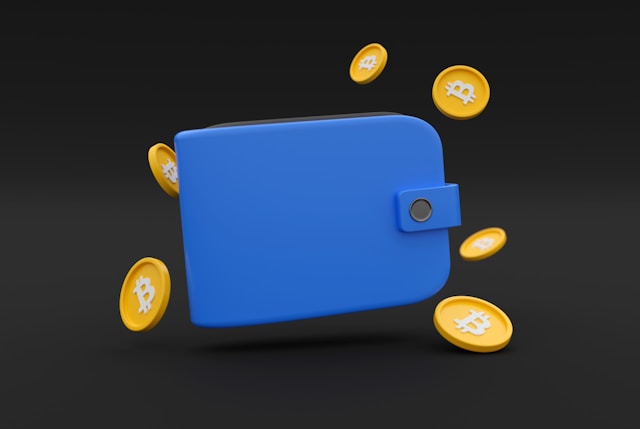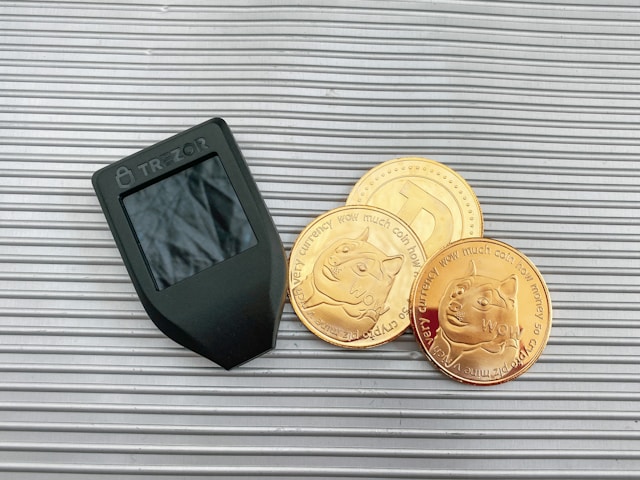Alright, folks, let’s dive into the world of crypto wallets. If you’re just getting your feet wet with Bitcoin, Ethereum, or any of the thousands of other cryptocurrencies out there, one of the first things you’ll need is a safe place to stash your digital loot. Your crypto wallet is basically your digital vault, holding the keys to your blockchain kingdom. Selecting the right wallet isn’t just a matter of convenience; it’s crucial for security and peace of mind. I mean, nobody wants to lose their precious crypto, right?
Understanding the Basics
So, what exactly *is* a crypto wallet? Think of it as a digital interface that holds your public and private keys, allowing you to interact with different blockchains and make transactions. It doesn’t actually store your crypto *itself*, but rather the information needed to access it. In essence, it’s the tool that lets you manage your digital assets securely. I know it sounds complex, but once you get the hang of it, it’s really not that scary. It’s like learning to ride a bike—a bit wobbly at first, but smooth sailing once you get going.
Hot vs. Cold: A Fundamental Divide
The first big distinction you’ll encounter is between “hot” and “cold” wallets. These terms refer to whether the wallet is connected to the internet or not. Hot wallets are online, making them convenient for frequent transactions. Cold wallets, on the other hand, are offline, providing a higher level of security. It’s like keeping your everyday spending money in your physical wallet (hot) versus storing your savings in a safe deposit box at the bank (cold). Each has its purpose, and many crypto enthusiasts use both.
Diving Deeper: Types of Crypto Wallets
Ok, this is where it gets interesting. There are a bunch of different types of wallets, each with its own pros and cons. Let’s break them down:
Hardware Wallets: The Fort Knox of Crypto
Hardware wallets are physical devices, like USB drives, that store your private keys offline. They’re generally considered the most secure option because they’re isolated from the internet, making it nearly impossible for hackers to get to them remotely. Trezor and Ledger are popular brands. But heads up, these wallets usually cost between $50 and $200, so there is that to consider. And honestly, sometimes they can be a little clunky to use, but the security is top-notch. When you make a transaction using a hardware wallet, the transaction is signed *on the device*, which means your private keys never touch your computer. Pretty cool, right?
Software Wallets: Convenience at Your Fingertips
Software wallets are applications that you install on your computer or smartphone. They’re much more convenient than hardware wallets because you can access your crypto anytime, anywhere. But keep in mind, they’re also more vulnerable to hacking and malware. Think of it like this: Software wallets are like keeping your money in a regular bank account, while hardware wallets are like storing it in a super-secure vault. Some popular software wallets include MetaMask, Trust Wallet, and Exodus.
Exchange Wallets: Trading on the Go
When you buy crypto on an exchange like Coinbase or Binance, your coins are typically stored in a wallet that the exchange controls. These are known as custodial wallets. They’re convenient for trading, but remember—you don’t actually *own* your private keys. That means you’re trusting the exchange to keep your funds safe. And honestly, exchanges *can* get hacked. Just something to keep in mind. It’s a bit like leaving your valuables with the hotel concierge – convenient, but not without risks.
Other Options: Web, Mobile, Desktop, and Paper Wallets
Beyond the main types, there are a few other options worth mentioning. Web wallets are accessed through a browser, mobile wallets are designed for smartphones, desktop wallets are installed on your computer, and paper wallets involve printing out your public and private keys. Each has its own trade-offs in terms of security and convenience. I wouldn’t recommend paper wallets for beginners, though – they can be a bit tricky to set up correctly.
Choosing the Right Wallet for You
So, how do you pick the best wallet for your needs? Well, it really depends on your individual circumstances. If you’re new to crypto and just starting out, a user-friendly mobile wallet like Trust Wallet or the Coinbase Wallet might be a good choice. If you’re more concerned about security and plan to hold a large amount of crypto, a hardware wallet is definitely the way to go. And if you’re an active trader, an exchange wallet might be the most convenient option, just be aware of the risks.
Ultimately, the best approach is often to use a combination of different wallets. A hardware wallet for long-term storage, a mobile wallet for everyday transactions, and an exchange wallet for trading. This gives you layers of security while maintaining flexibility. Remember, choosing the right crypto wallet is a personal quest. There’s no one-size-fits-all solution. Just take the time to research your options and find the best fit for your needs. And don’t forget to keep those private keys safe! Seriously, write them down and store them in a secure location. Trust me, you’ll thank yourself later.






